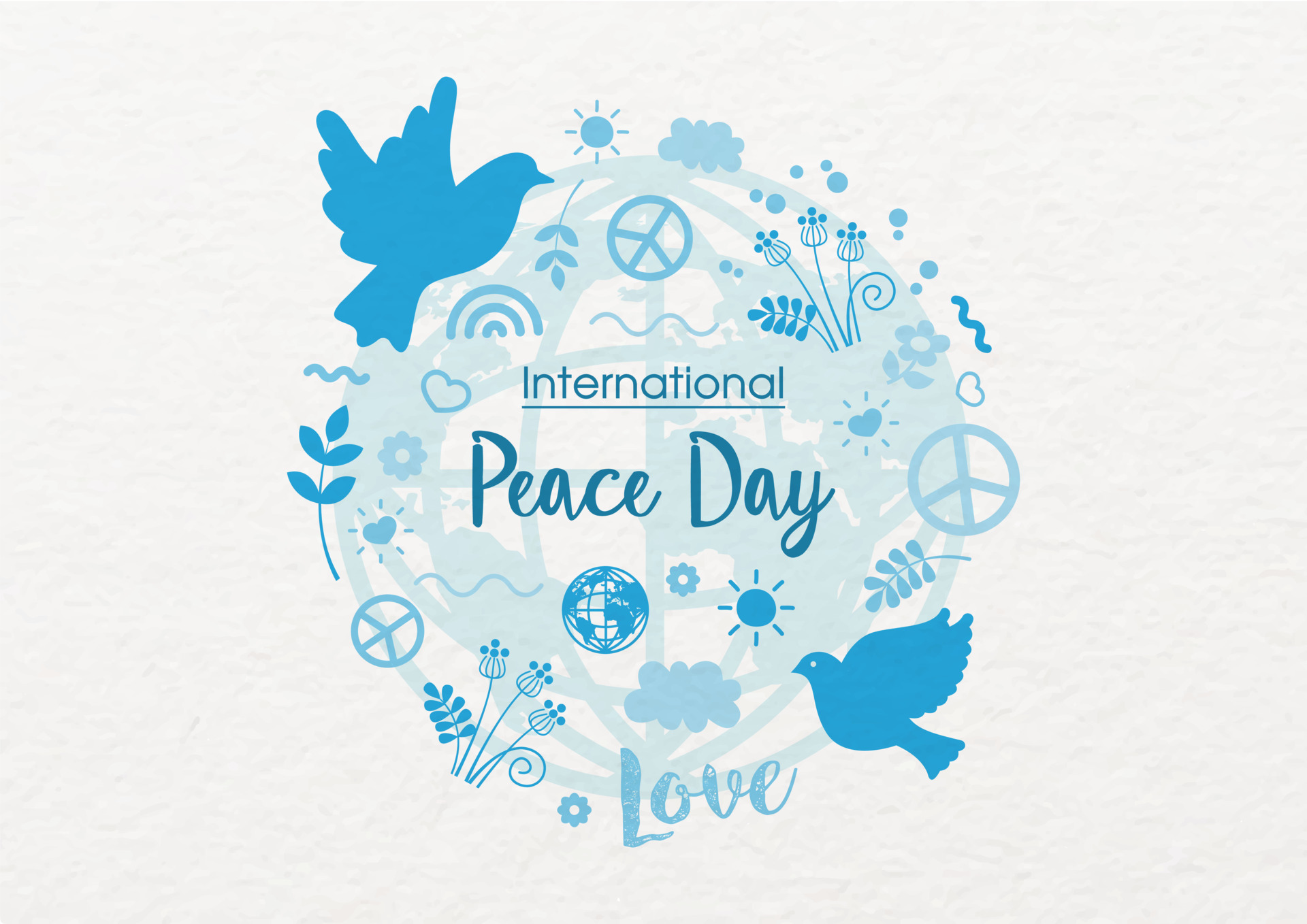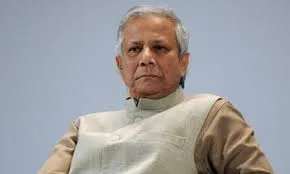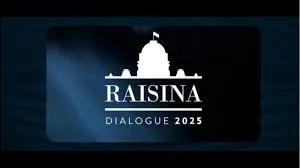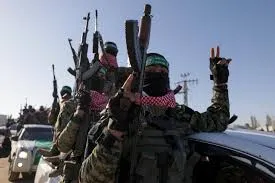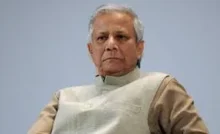The 2024 Theme for the International Day of Peace is ‘Cultivating a Culture of Peace’. This year marks the 25th anniversary of the United Nations General Assembly’s adoption of the Declaration and Programme of Action on a Culture of Peace.
This 5000 year old tradition has survived because it has countered, learned from, and assimilated elements from the various traditions it came across.
Other old traditions like those of Mesopotamia or Egypt, for example have not survived. This Great Tradition was then moulded by the likes of Bal Gangadhar
Tilak, Rabindranath Tagore, Mahatma Gandhi, Jawaharlal Nehru, B.R Ambedkar, Maulana Abul Kalam Azad, C Rajagopalachari—all iconic figures of India’s Independence movement—and their generation to fit the context of a modern nation state.
It both built upon, and deviated from, tenets of the ancient civilisation. These were Indians educated abroad, with wide exposure to ideas and experiences in many countries. This experience finds its place in the modern Idea in the acceptance of the basic tenet that all citizens are equal, and in the fundamental role given to democracy in the governance of the new nation. Both are new elements for the Great Tradition. It is an inclusive idea, in which people of all religions, languages, regions and castes are equal as citizens. The Rule of Law in a democracy would be supreme. No one was to be above the law—an unusual notion to most people in India, a society of great historical inequity. India adopted universal suffrage before many modern countries, and it has stuck to this basic belief in spite of niggles in implementation. Thus this Idea of India is the vision of a modern nation state superimposed on an ancient civilisation.
Sanatan Dharma guarantees world peace; in times of world crisis, all look to Bharat ..!!
Which principles have been given to the world by India for peace in the world?
Mutual respect for each other’s territorial integrity and sovereignty, ii. Mutual non-aggression, iii. Mutual non-interference, iv. Equality and mutual benefit. Here are some key points and ideas to note about World Peace Day, observed on September 21st:
History
– Established in 1981 by a unanimous United Nations resolution
– First observed on September 21, 1982
– Also known as International Day of Peace
Purpose
– To promote peace, tolerance, and understanding among nations and peoples
– To encourage global ceasefire and non-violence
– To foster cooperation and diplomacy
Themes
– Each year, the UN selects a theme to focus efforts, such as:
– Sustainable Development Goals (SDGs)
– Climate Action
– Human Rights
– Global Citizenship
Observance
– Minute of Silence: observed globally at 12:00 PM (local time)
– Events: concerts, rallies, vigils, and educational programs
– Activities: peace talks, community service, and cultural exchanges
Significance
– Raises awareness about peace and conflict resolution
– Encourages international cooperation and diplomacy
– Empowers individuals to contribute to peace efforts
India’s Geopolitical Relationships (as of 2024):
– Neighborhood First Policy: India continues to strengthen ties with neighboring countries like Nepal, Bhutan, and Bangladesh.
– Act East Policy: India deepens relationships with ASEAN nations, Japan, and South Korea to counterbalance China’s influence.
– Middle East and Africa: India nurtures strategic partnerships with the UAE, Saudi Arabia, and Israel, while engaging with African nations through the India-Africa Forum Summit.
– Quad and Indo-Pacific: India collaborates with the US, Australia, and Japan to ensure a free and open Indo-Pacific region, balancing China’s growing assertiveness.
– Russia and Central Asia: India maintains strong ties with Russia and engages with Central Asian nations to secure energy and strategic interests.
– European Union: India strengthens economic and strategic partnerships with the EU, particularly with Germany, France, and the UK.
In the context of Gurudev’s quotes, India’s geopolitical relationships aim to promote peace, harmony, and cooperation in the region and beyond. By fostering strong relationships and engaging in diplomatic efforts, India can contribute to creating a more peaceful and stable world.
As a peace-loving nation, India has established strong relationships with other countries through various initiatives and diplomatic efforts. Here are some examples:
1. Neighborhood First Policy: India has strengthened ties with neighboring countries like:
– Nepal: Through economic cooperation, connectivity, and cultural exchange.
– Bhutan: By supporting Bhutan’s development and security needs.
– Bangladesh: Through trade, energy cooperation, and border management.
2. Act East Policy: India has deepened relationships with ASEAN nations, Japan, and South Korea through:
– Economic cooperation and trade agreements.
– Strategic partnerships in defense and security.
– Cultural exchange programs and people-to-people connect.
3. Middle East and Africa: India has nurtured strategic partnerships with:
– UAE: Through economic cooperation, energy trade, and security ties.
– Saudi Arabia: By engaging in energy cooperation, trade, and cultural exchange.
– Israel: Through defense cooperation, agriculture, and innovation.
– Africa: By engaging with African nations through the India-Africa Forum Summit.
4. Quad and Indo-Pacific: India collaborates with:
– US: Through strategic partnerships in defense, trade, and technology.
– Australia: By engaging in defense cooperation, trade, and education.
– Japan: Through strategic partnerships in defense, trade, and technology.
5. Russia and Central Asia: India maintains strong ties with:
– Russia: Through strategic partnerships in defense, energy, and trade.
– Central Asian nations: By engaging in energy cooperation, trade, and security.
Some notable initiatives and achievements include:
– International Solar Alliance: India launched the International Solar Alliance to promote renewable energy globally.
– Asia-Africa Growth Corridor: India and Japan jointly launched the Asia-Africa Growth Corridor to promote economic cooperation.
– Indian Ocean Rim Association: India plays a key role in promoting regional cooperation through the Indian Ocean Rim Association.
– UN Peacekeeping: India has contributed significantly to UN peacekeeping missions worldwide.
These efforts demonstrate India’s commitment to peace, cooperation, and diplomacy in its relationships with other nations.
India has maintained a neutral stance in the Russia-Ukraine conflict, while engaging in diplomatic efforts to promote peace and dialogue. Here are some key points:
1. Neutrality: India has avoided taking sides, instead focusing on promoting diplomacy and dialogue.
2. UN Voting: India abstained from UN votes condemning Russia’s actions in Ukraine, while calling for restraint and de-escalation.
3. Diplomatic Efforts: India has engaged in diplomatic efforts, including:
– PM Modi’s phone calls with Putin and Ukrainian President Zelenskyy.
– External Affairs Minister Jaishankar’s meetings with Russian and Ukrainian counterparts.
4. Humanitarian Assistance: India has provided humanitarian aid to Ukraine, including medical supplies and financial assistance.
5. Grain Initiative: India supported the UN-backed Black Sea Grain Initiative, facilitating Ukrainian grain exports.
6. Energy Diplomacy: India has maintained energy ties with Russia, while exploring alternative sources to reduce dependence.
7. Multi-Track Diplomacy: India engages with various stakeholders, including the US, EU, and Turkey, to promote a peaceful resolution.
8. Raisina Dialogue: India hosted the Raisina Dialogue, a global conference, where Ukrainian and Russian representatives engaged in discussions.
Gurudev Sri Sri Ravi Shankar’s initiatives:
1. Peace Delegation: Gurudev led a peace delegation to Russia and Ukraine in 2022, meeting with leaders and promoting dialogue.
2. Art of Living Foundation: The foundation has provided humanitarian aid and stress-relief programs in Ukraine.
As I conclude my Thoughts & analysis on International Peace Day 2024, highlighting the significance of PM Narendra Modi’s leadership as a global leader: As the world observes International Peace Day 2024, India’s commitment to peace and diplomacy shines bright. PM Narendra Modi’s leadership has been instrumental in promoting global peace and cooperation. His vision for a harmonious world, where nations work together to address common challenges, resonates with the United Nations’ goals.
Under PM Modi’s leadership,
India has:
– Emerged as a key player in global diplomacy, fostering strong relationships with nations across the globe.
– Demonstrated a steadfast commitment to peace, through initiatives like the International Solar Alliance and the Asia-Africa Growth Corridor.
– Provided humanitarian aid and assistance to countries in need, showcasing India’s compassion and empathy.
– Encouraged dialogue and diplomacy to resolve conflicts, as seen in India’s efforts to promote peace in Ukraine.
Gurudev Sri Sri Ravi Shankar’s message resonates with PM Modi’s vision:
“Peace is not just the absence of violence, but the presence of harmony and love. Let us work together to create a world where peace, love, and compassion prevail.”
On International Peace Day 2024, September 21st, the world unites to promote peace, harmony, and diplomacy, echoing the timeless Indian wisdom of “Vasudhaiva Kutumbakam” – “The world is one family” – as nations and individuals strive for a more peaceful and prosperous future.


